From an outsider’s perspective, Oregon may appear to be a progressive, liberal state. National news stories have centered on cities like Portland and Eugene, whose residents are often portrayed as modern-day hippies and progressive activists. With these types of stories circulating nationally, it’s easy to see why people may believe the state has moved from its racist past.
However, if you look further into the state’s current affairs you find that Oregon is still full of racism.
Following the widely publicized death of George Floyd, a Black man who was killed by a white Minnesota police officer, the unresolved racism of Oregon and the United States as a whole has returned to the nation’s regular news cycles through the Black Lives Matter movement.
In response to the 2013 acquittal of George Zimmerman for the murder of Trayvon Martin, activists Alicia Garza, Patrisse Cullors and Opal Tometi created the hashtag #BlackLivesMatter to raise awareness of the racial injustices faced by the Black community.
As stated on the BLM website, the movement is both a political and ideological intervention in a world that has been systematically and intentionally created to oppress the Black community’s humanity, societal contributions and resilience.
Since the BLM movement began, its following has continued to grow. The awareness of cases similar to that of Trayvon Martin’s has grown alongside the movement’s supporters.
According to a study published in the Proceedings of the National Academy of Sciences by sociologist professors Frank Edwards, Hedwig Lee and Michael Esposito in August 2019, Black men are about two and half times more likely to be killed by police than white men. One in every 1,000 Black men is expected to be killed by police.
To shed light on what being Black in Eugene feels like, Ethos magazine invited members of the local Black community to freely write or speak about their experiences, thoughts and feelings about the movement. Ethos received written and oral submissions from a University of Oregon student, a local podcast producer, the president of the local chapter of the NAACP and the leader of a prominent Eugene Black Lives Matter group. Their diverse experiences and views all show the racism in Eugene, Oregon and America.
The BLM movement is the light at the end of the tunnel which gives us hope for equality. From its inception in 2013, after the murder of Trayvon Martin, the objective of the movement has been to put an end to the racial injustices in the U.S.
The statement, “all men are created equal” is paradoxical when white supremacy, systematic racism, racial discrimination and police brutality are still heavily embedded into this nation. The BLM movement is an integral piece to solving the puzzle when it comes to fixing this deprecating false narrative.
In light of the recent murder of Breonna Taylor, George Floyd and Rashad Brooks, BLM is saying “enough is enough.”
As a young Black man, I constantly live in a state of fear of that happening to me — being caught in the wrong place at the wrong time, inevitably leading to my death. The death of George Floyd really hit home for me because I grew up in Minnesota. People think that Minnesota is progressive. That racial inequalities don’t occur and everyone lives by our “Minnesota nice” motto. As a POC that grew up there, I can see through those lies.
To this day, Minnesota still struggles to combat the repercussions of racial discrimination. It’s everywhere. I’ve been pulled over so many times because the cop mistook me for someone else, I’ve been called racial slurs by white people and treated differently compared to my white peers.
All over the media, I constantly see innocent black men, women and children murdered. The disheartening reality of this is that there are many Black people who’ve been wrongfully murdered and their voices aren’t being heard.
BLM wants to change that by giving them a voice and igniting change. We want the voices of our fellow Black brothers and sisters to be heard. We are tired of being killed, we are tired of being oppressed and we are tired of being treated like second-class citizens. Most importantly, we are tired of fighting for basic human rights such as equality.
With protests occurring globally, the world has also had enough of the cruel treatment of Black people in the U.S. Although the protests are to combat racial injustices, it brings me joy to see people from all races and walks of life joining together in our fight for liberation. It also gives me hope that someday we’ll reach the end of that tunnel.
Just as Maxwell Ntege addresses the illusion of progressivity in Minnesota, the same can be said about the state of Oregon and the idea that ‘liberal college towns’ like Eugene have little to no racist encounters.
Since Oregon passed its first Black exclusion law in 1844, which ordered all Black people to leave Oregon, the state has been well-known for its racist actions. The emergence of the Ku Klux Klan in the 1920s helped to further strengthen the racially discriminatory ideologies that existed within the state. By 1923, the KKK had acquired over 35,000 members in Oregon.
Although the KKK became prevalent in Oregon almost 100 years ago, supporters of white supremacy can still be found throughout Oregon today. In recent months, the continual rise of BLM protests in cities such as Portland has led to the resurfacing of white supremacists supporting anti-BLM groups.
It wasn’t until 1959 that Black Oregon residents solidified their right to vote through the ratification of the 15th Amendment.
Issues of race have also arisen in the University of Oregon’s past. Since the UO was founded in 1876, the percentage of Black students attending the university in a single school year has not surpassed 2.5 percent.
In the 2019-2020 school year, only 2.4 percent of the student population was Black, a total of 548 Black students in a campus of 22,615 students.
Following the creation of the University of Oregon’s Black Student Union in 1966, a list of grievances and demands was submitted to UO President Arthur Flemming in 1968 and, in 2015, the Black Student Task Force, a combination of the Black Student Union and the UO Black Women of Achievement, sent a list of 12 demands to President Michael Schill.
These lists of grievances and demands addressed the institutionalized racism experienced by Black students attending the University of Oregon, called for more effort to educate students on the cultures and history of minority groups, demanded more faculty of color and requested a space on campus for members of the BIPOC community to gather, study and receive tutoring.
Since these lists were publicly released to the public, some, but not all, of the grievances and demands have been met and addressed. The two of the most recent demands met were the opening of the Lyllye Reynolds-Parker Black Cultural Center in October 2019, a center that now provides a space to learn more about Black history and culture as well as a place for students to gather, and the decision to change the name of the school’s oldest building: Deady Hall.
He came from behind, and I hit the ground. His hand gripping the back of my head and his knee jammed into my lower back. Both of my arms bent underneath me. He slams my head to the ground. I yell out to answer my son, “I’m okay, I’m okay.” He slams my head on the ground again. I yell out, “baby stop moving, I’m okay”. He slams my head on the ground at least one more time. I’m dizzy, and everything is echoing. He is trying to get my hands from underneath me to constrain my wrist in chains, handcuffs. I hold my hands tight. He’s stronger than me. He grabs my right arm and then my left, his knee grinding a, what would become a permanent indentation into my back. I’m shackled, both of my arms behind my back. He yanks me from one arm, not assisting me to my knees. I scramble with no upper body control to find my balance on my knees. I’m yanked to my feet.
I don’t recall much. I was riding in the back of the police car. The lights of the streets seemed bright, blaring, extreme auras around each one. I was numb. I was more still than I should have been. There were no tears. My awareness was altered, shifted, adrenaline centered. I was quiet, speechless. My mugshot public, humiliated for protecting my son.
I recall two years later, in court. My “peers”, 12 of them: 11 white, one Asian. Their verdict and their assessment. They hadn’t heard of Black Lives Matter. Their words: not guilty. Their conclusion: “We feel for her, and as a mother she did what any of us would do, but we just couldn’t see the officers doing that.”
This is Eugene, September 2017.
The incident discussed by Ayisha Elliott took place in July 2015 and began as a simple call to a non-emergency number regarding a personal issue with her son. The trial for Elliott’s claim of excessive force and racial profiling against her son and herself took place in September 2017.
After Elliott’s first request for a jury trial was denied, Elliott was able to get her case appealed. However, the federal jury ruled that she “failed to prove that Eugene police used excessive force against them.”
According to the court filings of Elliott’s U.S. Court of Appeals case, “even if probable cause did not exist, the officers would still be entitled to qualified immunity.”
The murder of George Floyd and other cases involving police brutality have brought attention to the problems with qualified immunity. As defined by the Legal Information Institute, qualified immunity “protects a government official from lawsuits alleging that the official violated a ‘clearly established’ statutory or constitutional right.”
Qualified immunity has made it difficult to hold police officers accountable for their actions and wrongdoings because courts generally require plaintiffs to back up their claims of misconduct with previous judicial decisions. This means that if the exact circumstance in question hasn’t been clearly established as an illegal action in a prior court case, the probability of government officials being convicted for their actions is very low.
“I was first called the n-word here in Eugene,” says Ibrahim Coulibaly, President of the NAACP and a single father of one.
After permanently moving to Eugene in 2011, Coulibaly came to discover the lack of diversity in a state known for its ‘whites-only” past. In contrast to his birthplace of Burkina Faso, in West Africa, and his previous residences of Paris and New York, Eugene did not have a large Black community.
“Coming from Africa, France and New York where you have a big African and Black community,” Coulibaly says. ”It was kind of a shock for me to see that we have a small community here.”
Following his move to Eugene, Coulibaly searched for organizations to connect him to the local Black community. In 2013 he discovered and joined the Eugene/Springfield chapter of the NAACP.
Coulibaly is now the president of the organization. Along with the NAACP, Coulibaly is also the Human Rights Commissioner for the City of Eugene.
The common theme among Coulibaly’s organizations coincides with that of the Black Lives Matter movement: justice and equality for all. Along with supporting racial equality through his daily work and volunteering, Coulibaly has continued to express his support through the messages of the movement.
“We have people protesting, we have people joining the movement, but, as John Lewis said, we have to ‘keep our eyes on the prize’ because we cannot be distracted,” says Coulibaly. “We have to know that, first and foremost, what we are asking for is equality, is justice. We aren’t asking for protests, we aren’t asking for riots, we are asking for justice and equality.”
To earn the support of protestors and supporters of the BLM movement, addressing the movement and its purpose has become essential for politicians throughout the United States. Despite many U.S. politicians claiming to support the movement and their fight for equality, their motivations may not be what BLM protestors are hoping for, says Coulibaly.
“Everybody wants to find solutions, but sometimes the solutions that people are looking for are the solutions about how to bring people back home, how to stop the protests. It is not how to listen, understand and make those ‘asks’ happen, it’s just ‘how can we control the movement?’” says Coulibaly.
“That’s my concern. It is that at some point people take their eyesight off the prize and focus on something different, and at that point, we may be asking ourselves if we are better off before or after George Floyd.”
Since George Floyd’s death, activists and supporters of the BLM movement have called for police reform through policy changes and a reduction of their funding. The arrests and convictions of the officers involved with Floyd’s death will not be enough for their fight for equality.
“We have to be better off,” says Coulibaly, “We have to have better communicative partisans, we have to be better about political accountability, we have to have criminal justice reform, we have to have more opportunity for people of color, we have to have systemic racism addressed. If we don’t focus on those things, if we see the protests as a defensive thing to do, at the end of the day we may not achieve a lot.”
The 1860 census for Oregon reported that out of the 52,465 people that lived in the state, only 128 were African American – a total of 0.24 percent. Oregon’s Black exclusion laws ended with the ratification of the 14th Amendment in 1973, but Oregon has remained predominantly white.
In July of 2019, 86.7 percent of Oregonians were white and 2.2 percent were Black. In Eugene, the population was 83.3 percent white and 1.6 percent Black.
Although the number of Black students and residents in Eugene is low, there’s been strong support for the BLM movement.
Since May 29, Eugene and Springfield have seen regular BLM protests. Black Unity, one of the most prevalent BLM protest groups in the area, has been organizing largely peaceful protests and events in the Eugene/Springfield area for the last several months.
My name is Sophia Haug and I am a Black woman in Oregon. I had my first racist experience when I was 5 years old in Thurston. My best friend at the time was a little blonde white girl. We were inseparable and wanted to be just like each other. Her grandparents did not approve of this friendship. They would always make sure to make me feel unwelcome, exclude me from adventures and would not let their family take pictures with me. Later on in life, my friend disowned them because she found out they were racist and homophobic.
In my teenage years, racism became a normal thing. In high school, all of the Black kids hung out by the planters together and they referred to us as “the monkeys in the jungle,” They loved the Black boys there because they were athletes but the Black girls were sexualized. Boys dated white girls but hit the black girls up on the low and would never date them. They would speak about the black girls saying, “she’s pretty but she’s too dark to date.”
As an adult things began to change inside of me. I’ve always been vocal about racism and injustice but I finally realized enough is enough! I started using my platform to voice my experiences and enlighten people on what it’s like to be a Black woman in racist America.
I’ve been rejected jobs for “being too vocal”. I’ve been rejected advancements in a job for being a woman, and a Black one at that. I’ve been fetishized by men because “they’ve never been with a black woman before.” Rejected. I’ve been called violent, aggressive, intense, over the top, crazy, etc., all for being passionate about seeing change.
When George Floyd was killed by the police there was a shift in energy in the world. Finally people were mad with me. Finally people wanted to see change too. Finally people were speaking up… but this came with major backlash. I joined a group named Black Unity and we are determined to make change. We peacefully protested because society told us that was the best way to make change.
We peacefully protested everywhere until one day we woke up a neighborhood that was more racist and vicious than anyone and was not ready for change.
Thurston… Springfield/Thurston is by far one of the most racist cities in Oregon. We started gathering at a park by a man’s house. This man prior to the protest called a 13-year-old Black kid a “nigg*r” and told him to go “back to where he came from.” Black neighbors have been harassed and even had to move.
That night, although we peacefully protested, saged the community, drew loving quotes in chalk and sang “Black Lives Matter,” the racist Springfield police department decided to beat us down, nearly kill a leader, break a leaders nose, break ribs, assault a woman, drag a woman by her hair, beat someone up in handcuffs and so much more.
They trapped us in this neighborhood, did not speak to us, put a barrier up just to push it back and beat us up. They coordinated with the counter-protesters and rounded us up to face them in the dark. The counter-protesters had automatic guns, wasp spray, knives, paintball guns full of frozen paintballs, mace, flagpoles to stab us with and some were extremely intoxicated including a woman who assaulted a BLM protester and gave her a concussion.
They were screaming things like “get out of our city” and “go back to where you came from.” They informed us that next time we come back “necks will be broken,” “there will be bloodshed” and “you will get hurt or killed.” They told me they knew everything about me and are coming for heads.
After this protest happened we realized the severity of the problem at hand. We saw and heard unbelievable things. We realized that we were going to have to come back harder than ever and fight until change is made.
This is war. No justice, no peace.


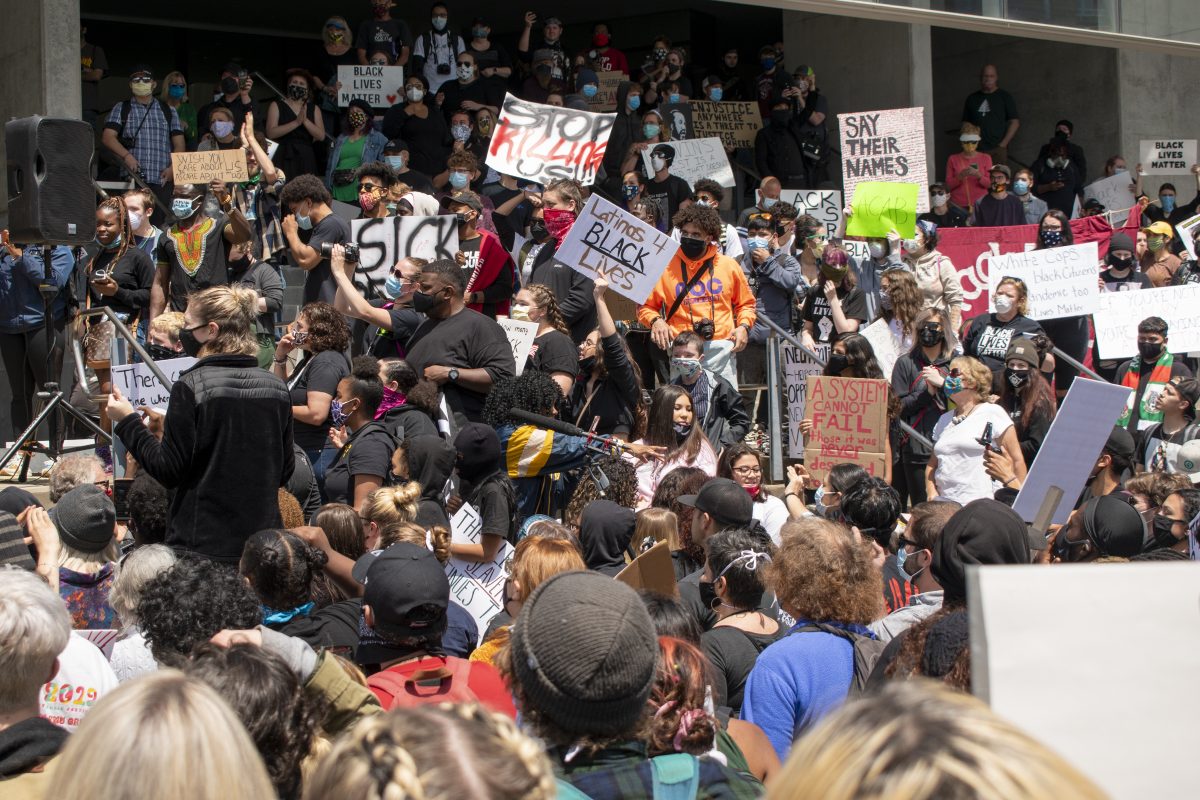
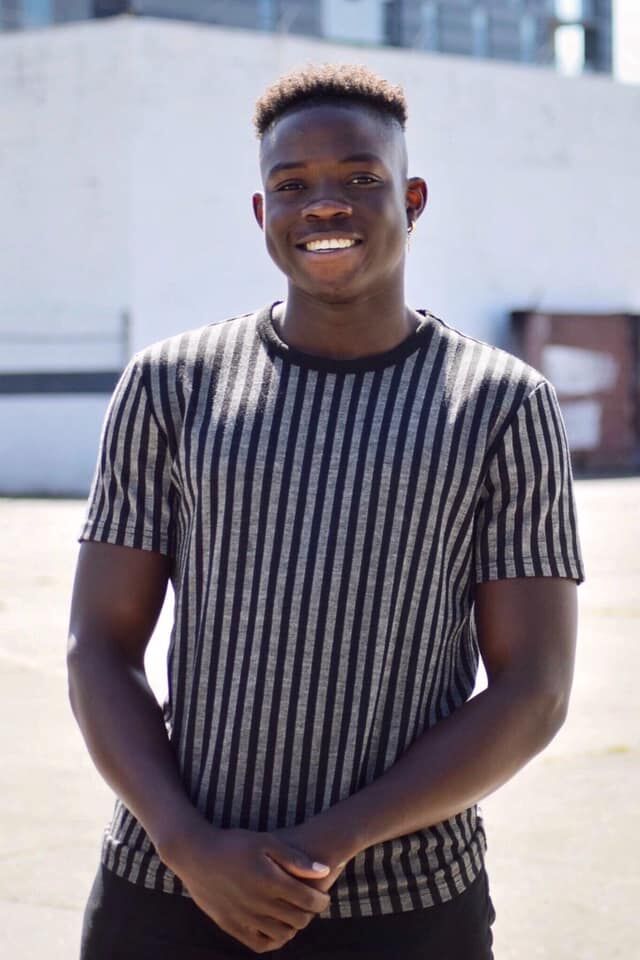
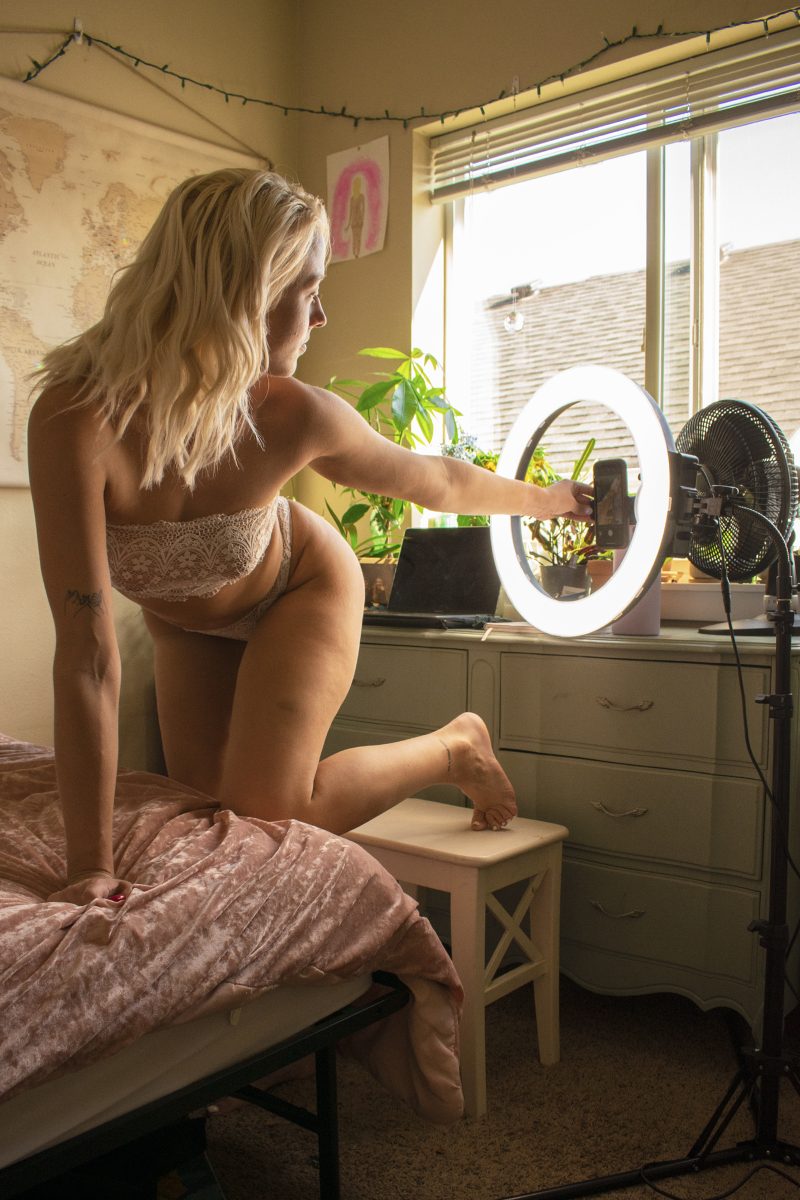
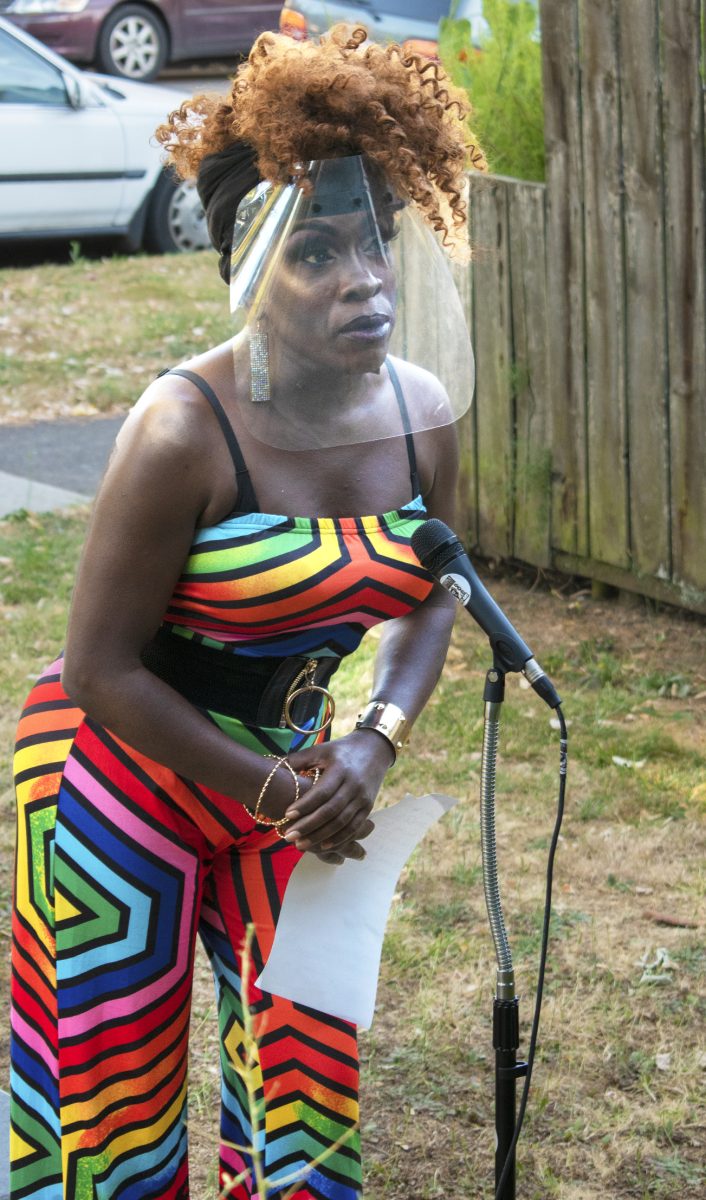
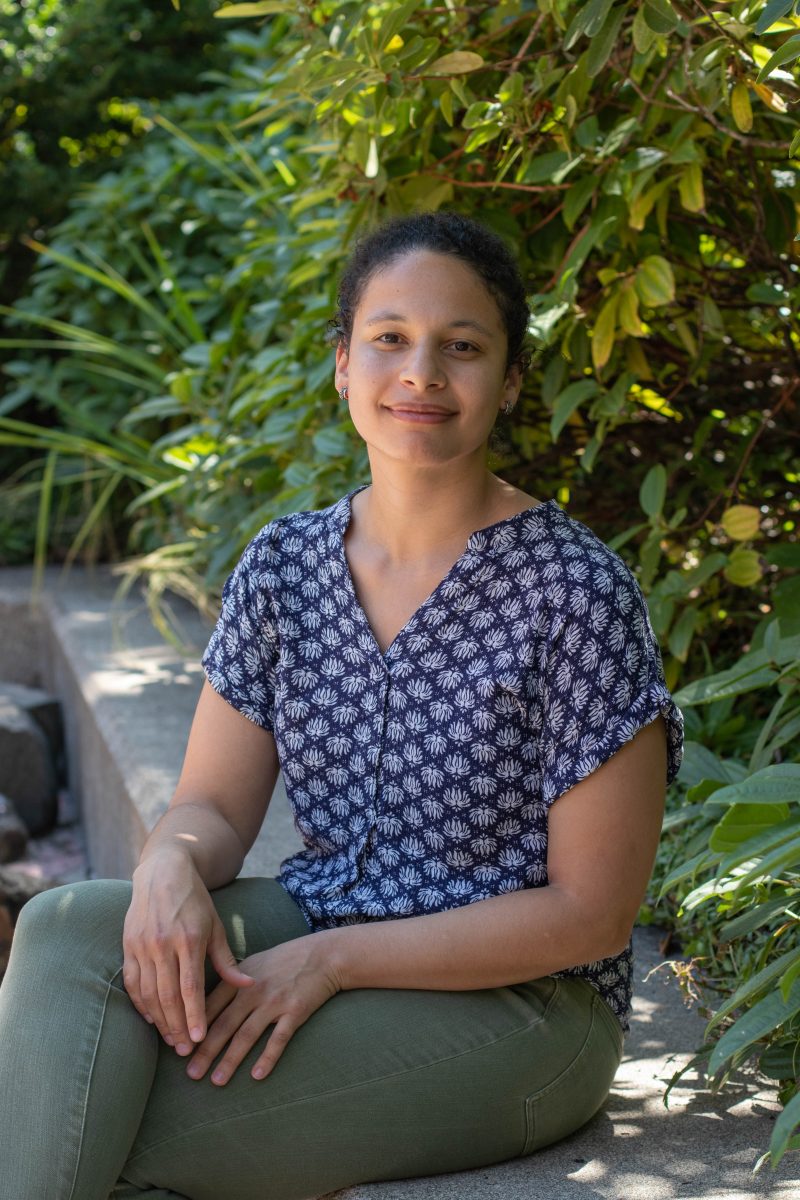
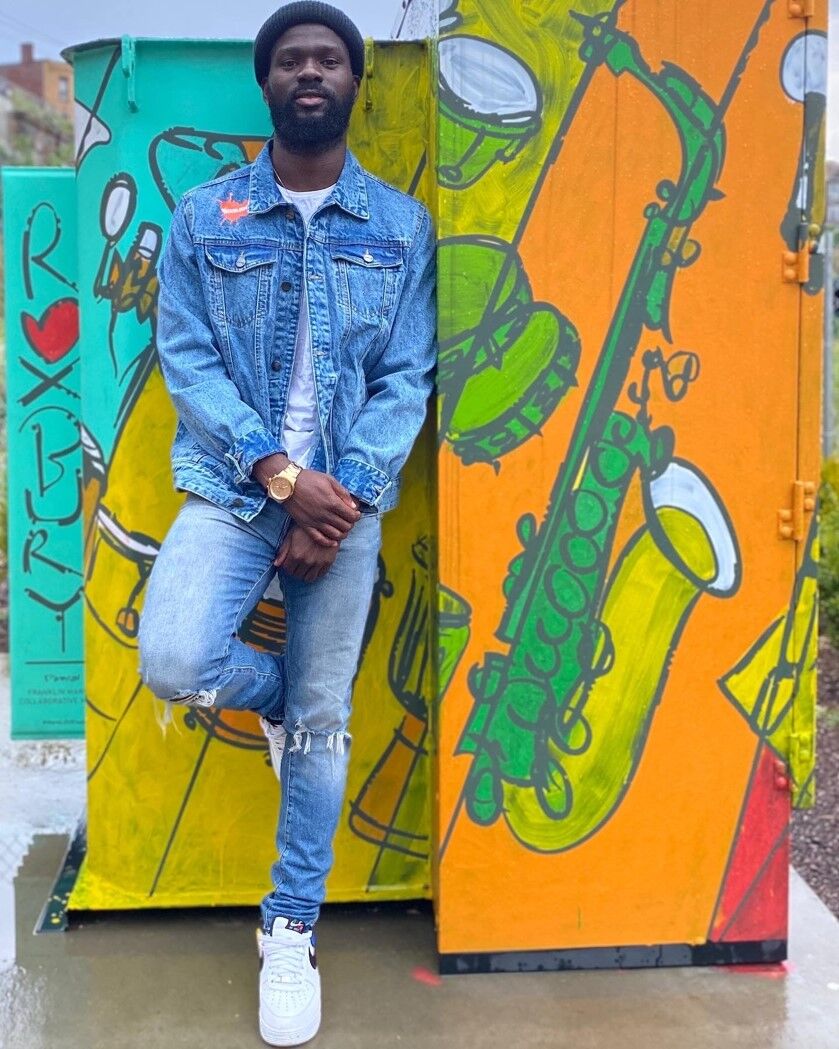
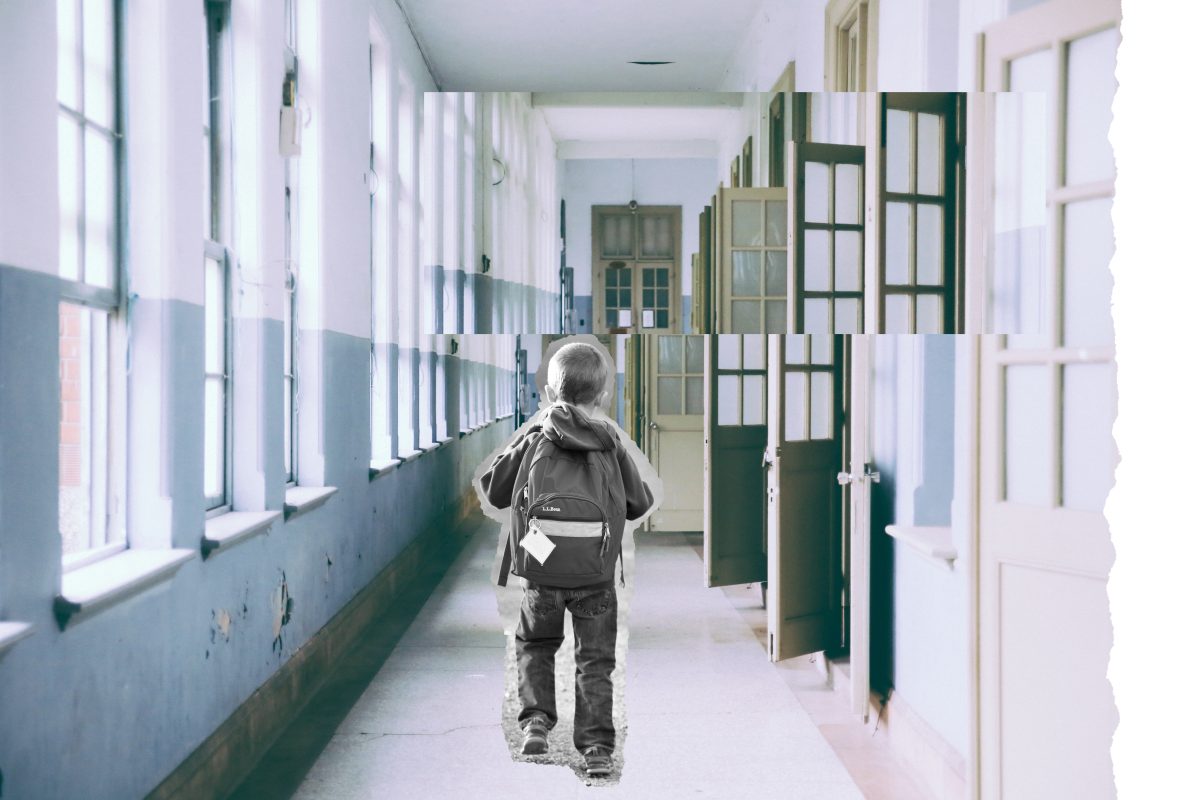
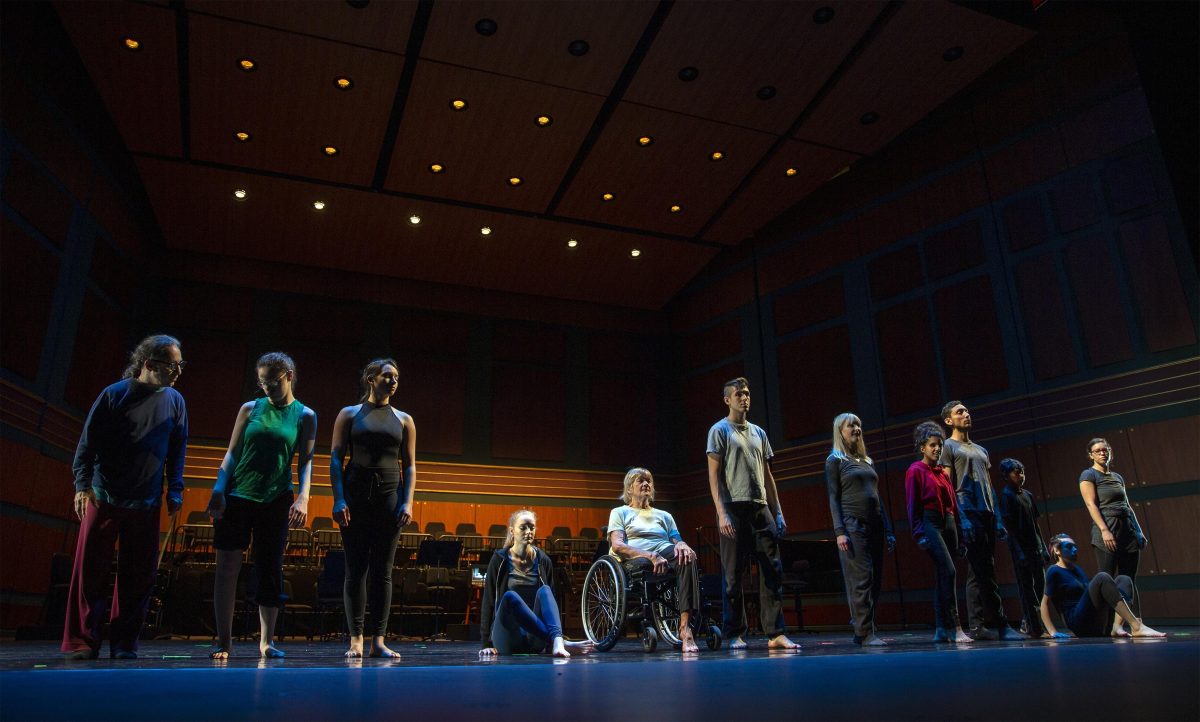


![[Photo Courtesy of the Lara Family]
Ruben embraces his beloved childhood goat, Katrina.](https://ethos.dailyemerald.com/wp-content/uploads/2025/05/katrina-1-1060x1200.jpg)


